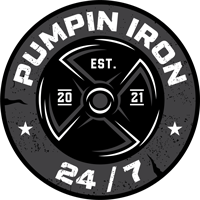Supplements to Enhance a Healthy Diet
For various reasons, people often need to supplement their diet with nutrients or foods. While a balanced diet theoretically provides enough nutrition for good health, achieving daily required levels of vitamins, minerals, or essential nutrients can be challenging or impractical at times, necessitating the use of supplements.
Good nutrition is crucial for good health, but dietary gaps are common despite efforts to eat well. Factors such as age, pregnancy, medical conditions, or calorie-restricted diets can increase the risk of nutrient deficiencies. For instance, older adults, pregnant women, and individuals with certain health conditions or allergies may be more vulnerable. Similarly, those who limit food groups, such as vegetarians or vegans, might also face nutritional challenges.
Understanding Food Supplements
Food supplements are concentrated sources of nutrients consumed to compensate for deficiencies or to achieve specific health goals. They are available in various forms like pills, powders, tonics, or capsules and are marketed as substitutes for nutrients found in natural foods, ranging from minerals and fish oils to vitamins.
While supplements may contain higher nutrient levels than natural food sources, they cannot fully substitute for a healthy diet. Whole foods provide a spectrum of nutrients that our bodies absorb and utilize effectively for growth, health, and energy. When nutrients are extracted from foods and consumed as supplements, they may not offer the same benefits as when consumed in their natural state.
Supplements should complement a balanced diet and healthy lifestyle, not replace them. They are not magic solutions but serve as additional support.
Considerations Before Taking Supplements
Before starting supplements, it's advisable to consult a doctor or a registered dietitian/nutritionist. A simple blood test can identify specific nutrient deficiencies or borderline deficiencies, helping to determine the need for supplementation. Self-diagnosing based on symptoms can be misleading, as underlying medical conditions may mimic nutrient deficiencies.
Here are some additional points to keep in mind when considering supplements:
- Be critical of supplement claims; if they sound too good to be true, they probably are. Scientific evidence should back up any health claims.
- Avoid mixing nutrient supplements with medications without professional advice, as interactions can have adverse health effects.
- Prioritise a well-rounded diet that includes all essential food groups: vegetables, fruits, grains, lean proteins, dairy, or alternatives. If certain foods are restricted, find suitable alternatives to maintain nutrient balance.
- Minimise consumption of refined sugars and highly processed foods, which are often low in nutrients compared to whole foods that promote health and well-being.
- Avoid excessive supplementation, as some nutrients can accumulate in the body and cause toxicity at high doses. Vitamin A, for example, can be harmful when taken excessively.
Recommended Supplements
While supplement needs vary based on individual circumstances, here are commonly recommended supplements that can address dietary gaps safely and affordably:
1. Multivitamins and minerals: A comprehensive supplement can help prevent deficiencies and support overall health, although it should not replace a diverse diet rich in fruits and vegetables.
2. Creatine: Beyond sports nutrition, creatine supplementation may benefit cognitive function and muscle health in adults and the elderly.
3. Omega-3 fatty acids: Found in fish oil supplements, omega-3s support brain, heart, and muscle function, and may enhance recovery from injury.
4. Protein supplements: Useful for maintaining muscle mass and supporting muscle growth, especially when dietary protein intake is inadequate.
5. Vitamin B12: Essential for nerve function and DNA synthesis, often lacking in vegan or vegetarian diets and may require supplementation.
6. Iron supplements: Critical for oxygen transport in the body, especially needed by women, vegetarians, or those with iron deficiency.
Conclusion
While nutritional supplements can fill gaps in a diet, they should complement—not replace—a healthy eating plan and active lifestyle. Focus on diversity in your diet to ensure adequate nutrient intake from natural sources. Whether pursuing specific fitness goals or managing health conditions, consult with a healthcare professional to determine the appropriate use of supplements tailored to your needs.


Share:
Your Quick Guide to Glutamine
What You Need to Know About Whey Protein